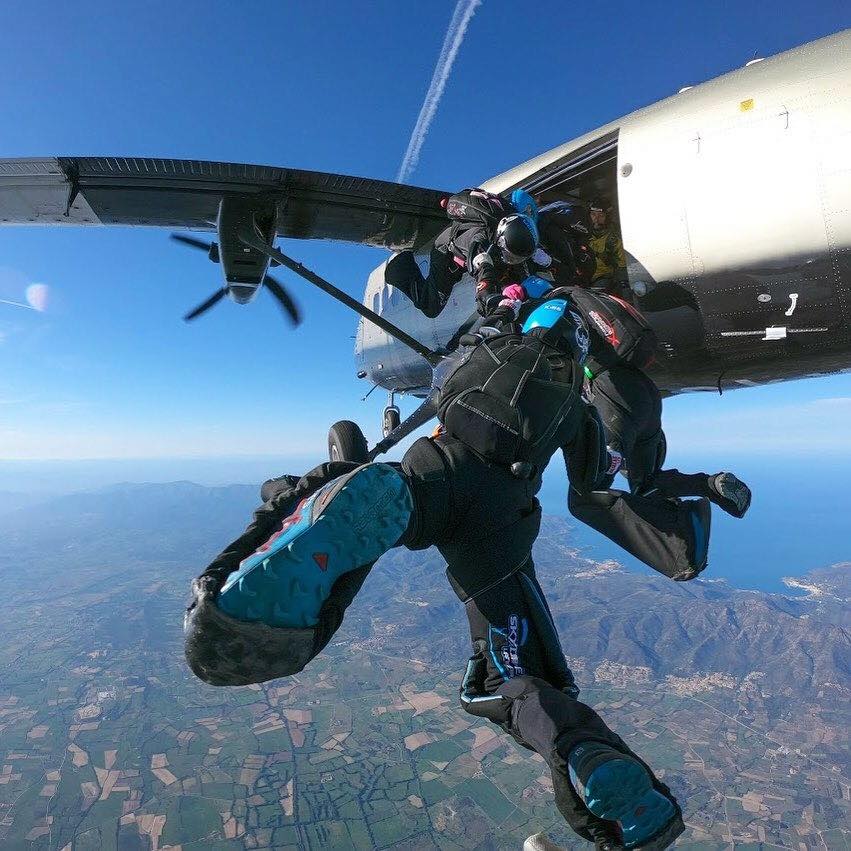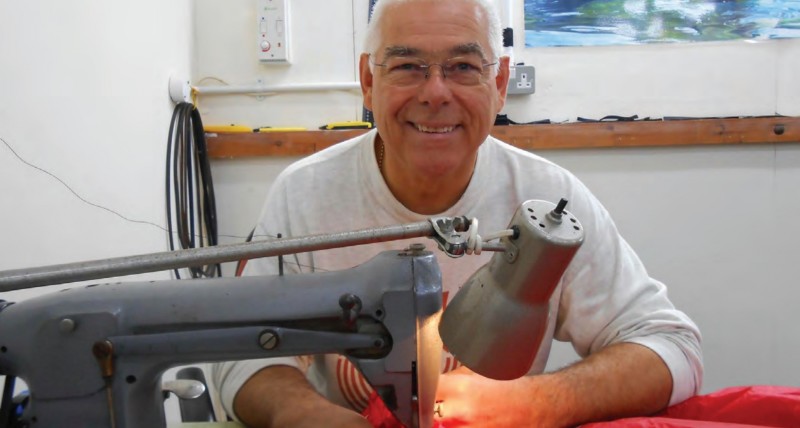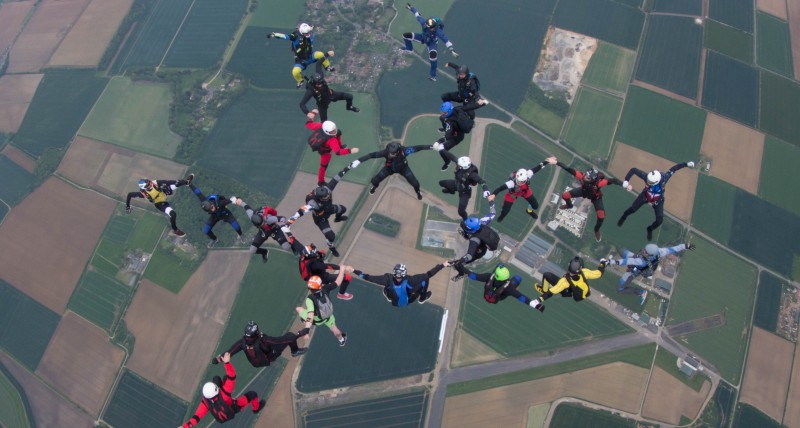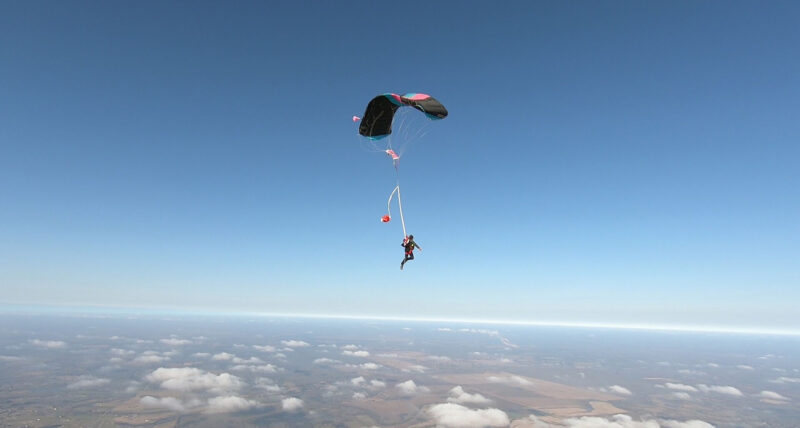4-way team Chimera share their advice for competitive teams
Competition is really fun. It’s also absolutely awful. Especially if you’re a trained team. It’s the ultimate culmination of everything you’ve put in, and you want to give it your all to get as much as possible out.
And, no matter how much you’ve trained, the competitive environment is unlike anything else you’ll face during your season. For some teams, competition is awesome; it gets them fired up, it pushes them to do better than they’ve ever done in training and they thrive. For others, it adds so much pressure that things almost (and, sometimes, actually do) break down.
The reality is that competition affects teams, and individuals, in unique ways. The other reality is that, as a competitive team, it’s something we have to face. Here are our tips, from our experiences, on how best to prepare for competition.
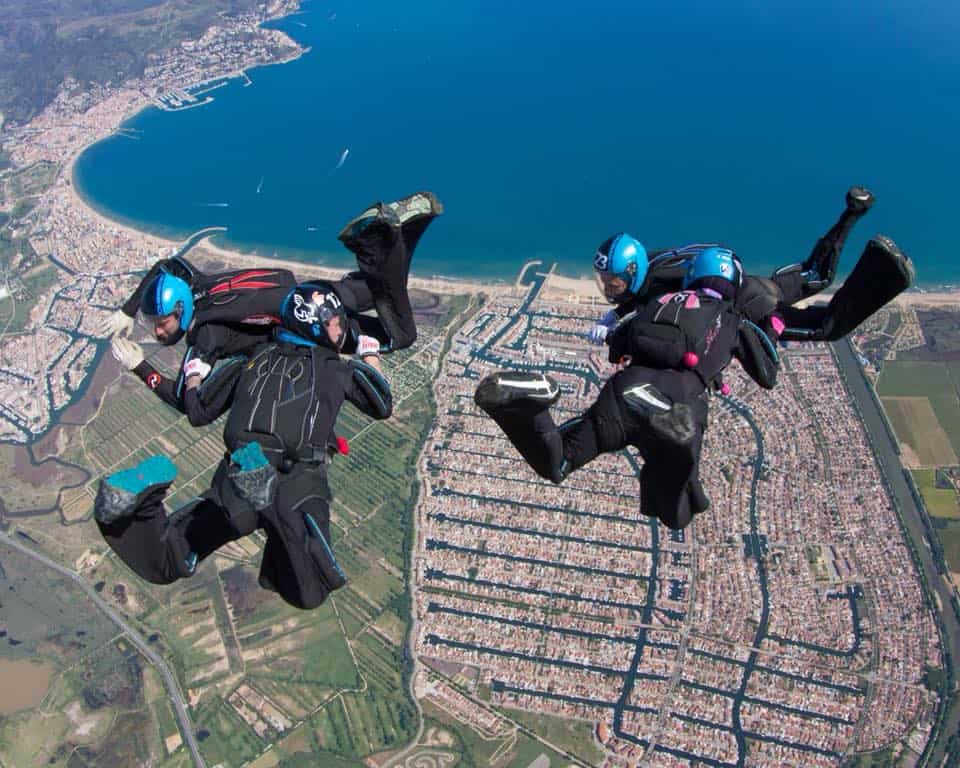
It all starts at the beginning
If you think you don’t need to prepare for competition until you arrive for Round 1, you’re very much mistaken. Preparation for competition begins right at the start of your season and, in fact, at the start of your team.
If you intend to train together and therefore spend a lot of time together, it’s really valuable to give some time early on to getting to know each other better. Even if you’re amazing friends before you decide to make a team, there are little nuances about each individual that are well worth knowing. Here are some example questions to ask of your teammates:
- How do you respond to stress?
- How do you want us to respond to your response to stress?
- How do you respond to success?
- How do you want us to respond to your response to success?
- How do you like to prepare for stress?
- How can we support your preparation for stress?
It might sound a bit fluffy, but this exercise has underpinned a lot of our success as a team. Knowing that one person likes to be alone just before facing stress means the rest can leave that person to it without any questions like “Are they OK?” and “They’re not talking to me, why?”. It removes undue stress for everyone. Equally, knowing that another person appreciates a hug if things don’t go to plan means that everyone can give them that and then move on, so that person gets the support they need, when they need it.
Get the practice in
There are multiple competitions that happen throughout the British season, thanks to the UK Skydiving League meets put on by the BPA. If you’re lacking in competition experience, it’s well worth trying to get to as many of these UKSL events as possible because that’s where you’ll get to face the competitive environment head on.
There are also competitions to consider in other countries too. You can compete indoors at international competitions like Wind Games, or even consider attending the outdoor national competitions of other countries where you will compete as a guest team (do double-check the rules for each individual comp). There’s no better preparation for competition than competing.
That said, it’s not always possible to attend lots of competitions, so you might want to do more to emulate that environment as you prepare your team for Nationals. For example, something our coach Niklas suggested to us was that we post the first jump of every day of our training camp on our Facebook page, knowing that our peers – and our competitors – would see it. That approach can add pressure to your jump and doing it on the first jump of the day is a great way to practise getting into competition mode for Round 1.
Other ways to emulate competition might be to repeat the jumps of a completed competition, where you can then count up your points and compare to the other teams. It’s less pressure than a real comp, but can at least give an element of that feeling.
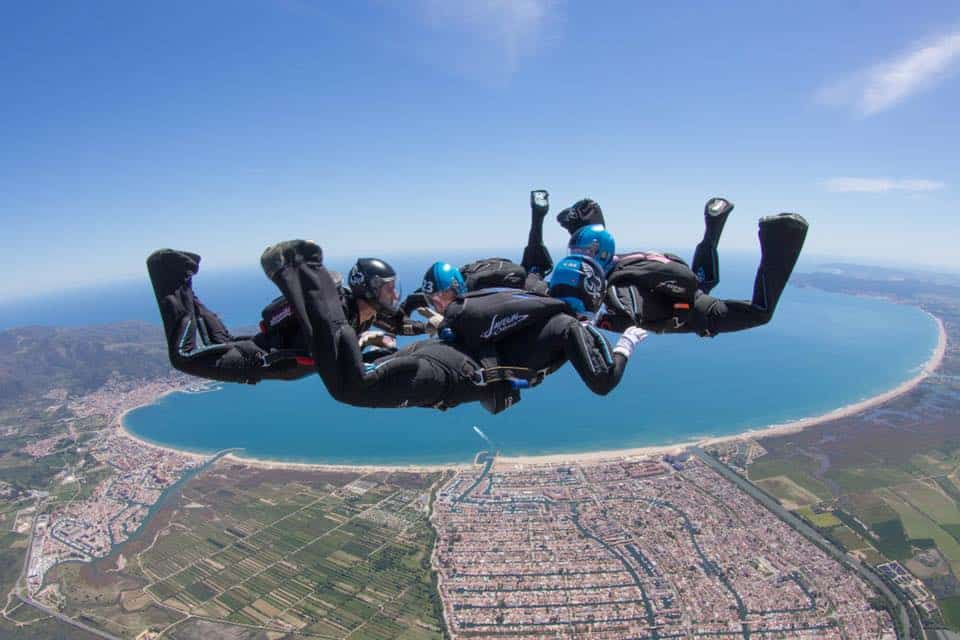
Agree your team process in advance
When the time finally comes for you to head to your competition, it’s worth agreeing a process in advance. That means knowing what time everyone will meet, what you’ll do on arrival at the DZ, where you’ll be keeping your stuff, how soon before the jumps you intend to gather on flight line, and so on.
It’s also important to have a clear process for what happens in-between jumps: what will you do immediately on landing (wait for your teammates, get on the bus without them?), how will you respond to the jump in that moment (debrief on the landing area or quick high five and move on?), will you be looking at the scoreboard or not, when will you prep your next jump, are you packing for yourselves, and so on.
Having that clarity around process just eliminates any confusion and the unnecessary stress of finding the person who’s just wandered off to their tent or gone to the loo, leaving the rest of you looking lost on the creeper pad.
This is competition, not training Finally, remember that, once you’re at your competition, you’re no longer training. This isn’t about going out and doing better than you’ve done before, nor is it about trying new things or adjusting your technique. What you have put in up to now is what you have to have to do in your competition jumps – no more, no less.
That means making peace with the fact that your training up to this point is enough. What’s great about our sport is that the performance of others doesn’t have a direct bearing on what we as a team can achieve. It’s up to us – to you – to give it your best and then the scores will show you how that compares. Maybe it’ll be enough to win, maybe it won’t, but it’ll be the foundation for the next season, when it all begins again.
At the end of the day, we’re skydiving and it’s fun. Enjoy it!
If you’d like any help preparing your team for competition or if you want to follow more on how we do it this season, check out our Facebook page at http://facebook.com/chimeraskydive
Photos: Chris Cook
 First published in the August 2019 issue of Skydive the Mag.
First published in the August 2019 issue of Skydive the Mag.


